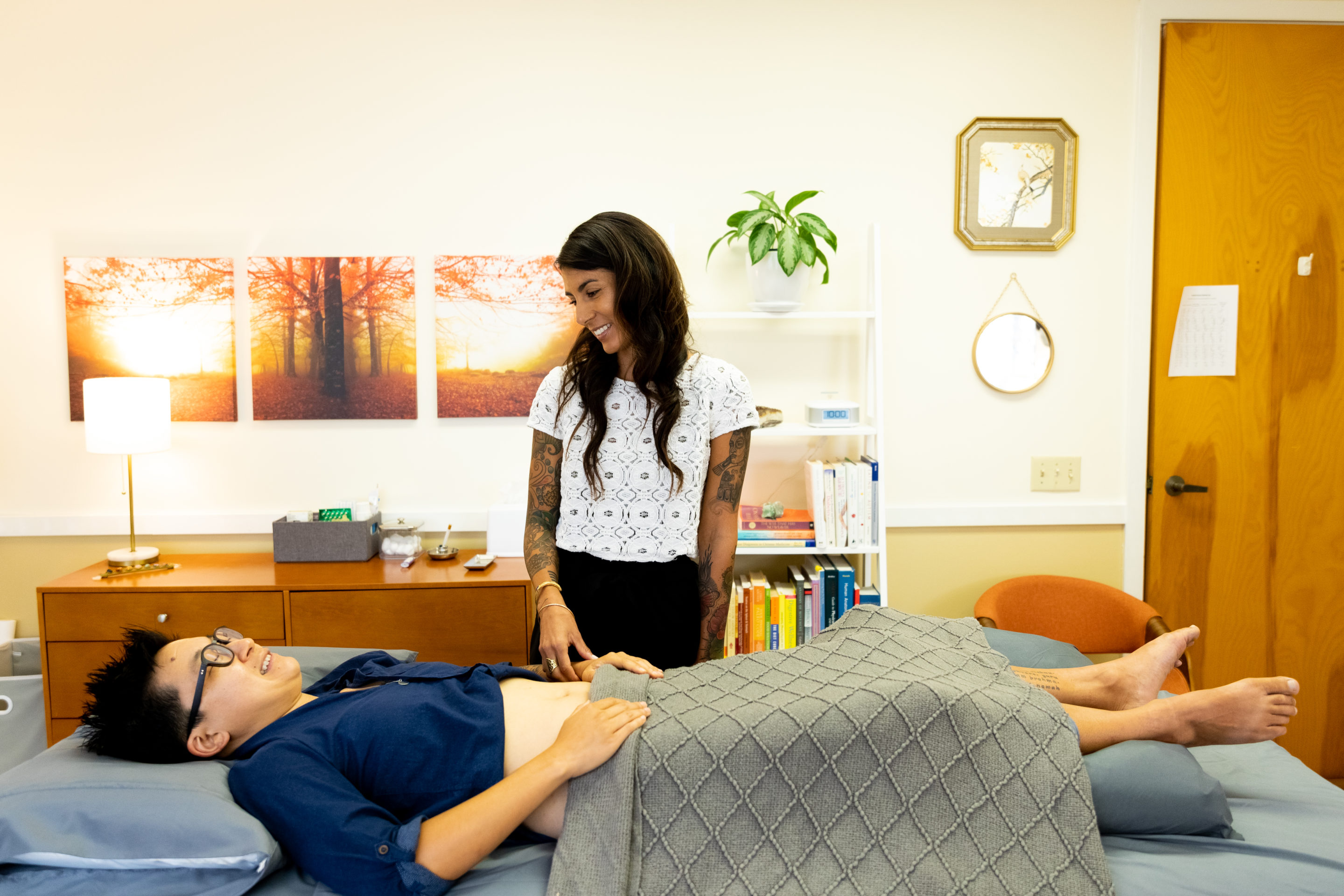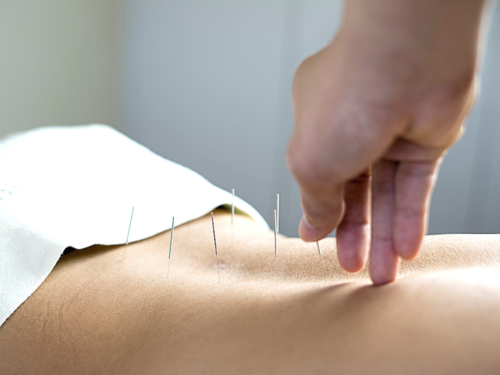PCOS

What Is PCOS?
Polycystic Ovarian Syndrome, or PCOS, is a condition in which the endocrine (hormone) system is affected, often creating irregular menstrual cycles, difficulty conceiving, difficulty losing weight, excess hair growth, acne and more.
Polycystic Ovarian Syndrome affects nearly 6% to 10% of people who menstruate, making it one of the most common endocrine disorders. Despite its name, not all people with PCOS actually have cysts on their ovaries. People with PCOS may present with any of the following:
- Excess androgens/hormone imbalances
- Blood sugar imbalances/insulin resistance
- Cystic ovaries/multiple immature follicle development
- Hirsutism (excess body hair)
- Cystic acne
- Menstrual irregularities
- Anovulatory cycles
- Painful periods
- Infertility
- Recurrent miscarriage
- Elevate triglycerides and/or cholesterol
- Anxiety
- Depression

“I was terrified of needles and as a result experimented with everything else before giving acupuncture a try. I wish I had tried it first! Dr. Merritt has helped my body improve leaps and bounds. I struggle with PCOS and general hormonal and cycle issues. She has helped me see progress in a matter of weeks, which is incredible because I’ve spent the last 10 years trying to get similar results from numerous diets, hormonal treatments (both traditional and holistic), and all sorts of testing.“
Can Integrative Acupuncture Help?
Yes! Research supports that acupuncture and integrative medicine can help improve PCOS symptoms (1). Integrative medicine can support the endocrine system (hormone) system, promoting regular ovulation, healthy glucose metabolism and more .
Tools We Use in Our Clinic
Diet: Optimal nutrition is essential for health, and can be especially helpful for managing PCOS. A low glycemic diet high in nutrient dense, good quality protein, fat and lots of vegetables can go a long way in managing PCOS. Even if someone with PCOS doesn’t present with dysglycemia or high blood sugar/A1C, many people notice that their PCOS symptoms improve when implementing a low glycemic diet full of colorful, whole foods.
Exercise: Regular exercise is an important piece of any PCOS management plan. Exercise helps increase insulin receptivity, allowing cells to more adequately take in and use the nutrients you’re eating. It also promotes optimal circulation throughout the body, including the reproductive organs.
Supplements & herbs: There are many supplements that have shown be helpful for managing PCOS. We use herbs and supplements in our clinic to promote hormone balance, blood sugar regulation, and regular cycles. Each person’s needs will be different, and not all supplements “recommended for PCOS” are appropriate for everyone.
Stress management: Managing stress is important for any reproductive health plan, and especially important for PCOS, because high levels of stress produce high levels of cortisol. Cortisol is a hormone which, in excess, can contribute to inflammation, insulin resistance and more. Try to find a little time every day to do something to help you unwind. This kind of self care is essential to success in managing PCOS.
Acupuncture: Studies show acupuncture can support people living with PCOS in several unique ways. Acupuncture can help regulate the cycle and promote ovulation by encouraging a healthy communication between the pituitary gland (master hormone control) and the ovaries. It can also reduce stress, promote better circulation and healthy hormone metabolism (2).

“I came to Natural Harmony experiencing a lot of confusion and fear surrounding my PCOS symptoms that had recently landed me in the ER. Dr. Merritt listened to every little problem I was concerned with. Every acupuncture session felt wonderful and relieved so much tension. Those along with the supplements/herbs she prescribed and dietary recommendations have helped my body and mind get back on track in a super noticeable way. I’m truly impressed with the holistic nature of her practice and appreciate the value placed on both eastern and western medicine. I also find the pricing to be very reasonable. Would easily recommend her to my friends and loved ones.”
References:
1) Jedel, E., Labrie, F., Odén, A., et al., (2013) Impact of electro-acupuncture and physical exercise on hyperandrogenism and oligo/amenorrhea in women with polycystic ovary syndrome: a randomized controlled trial
2) E. Stener-Victorin, E. Jedel, L. Manners (2007) Acupuncture in Polycystic Ovary Syndrome: Current Experimental and Clinical Evidence

